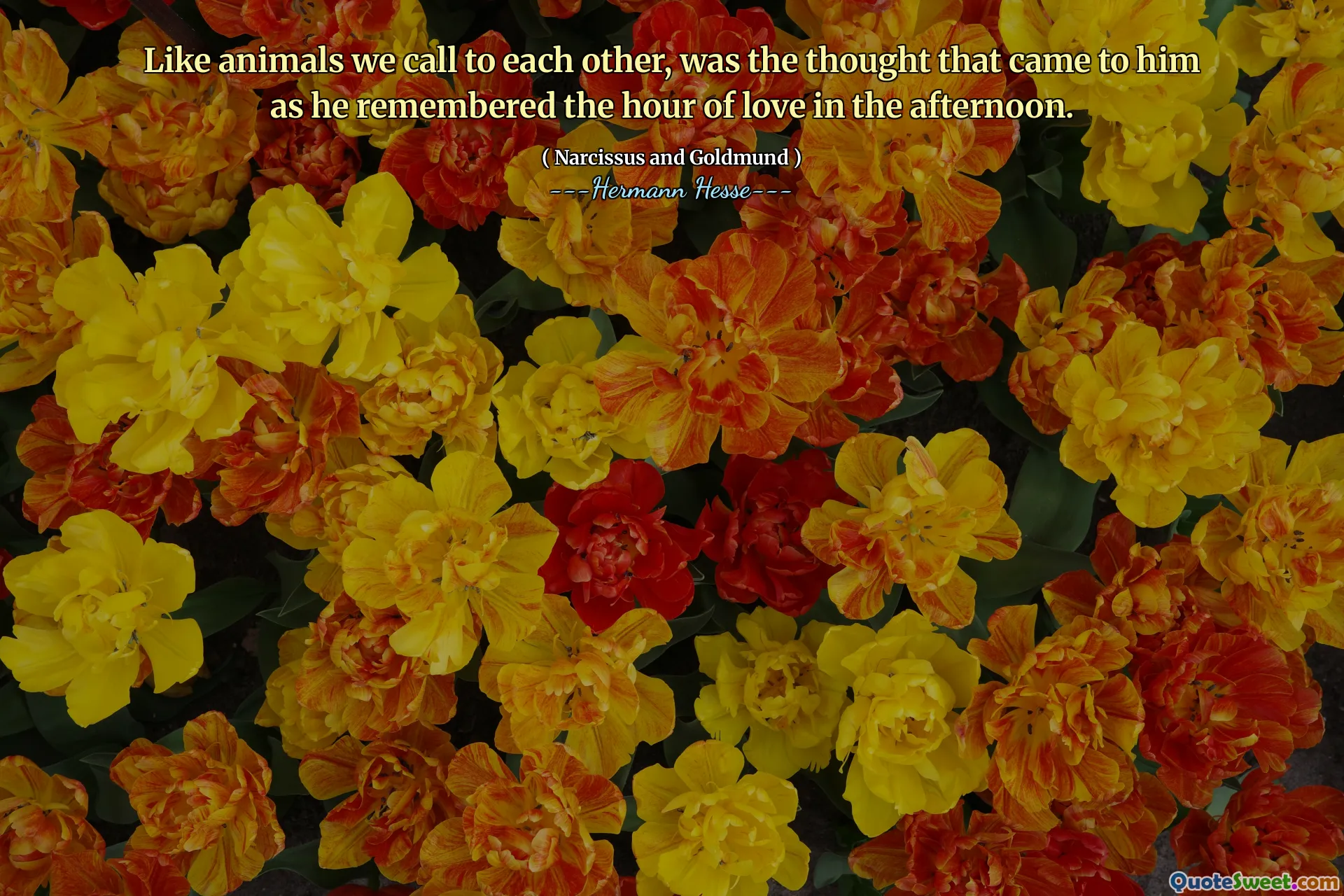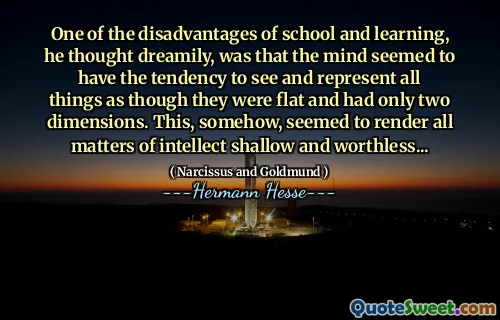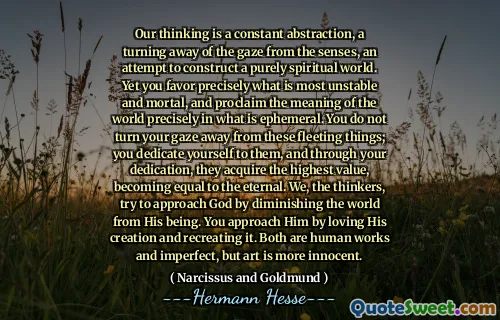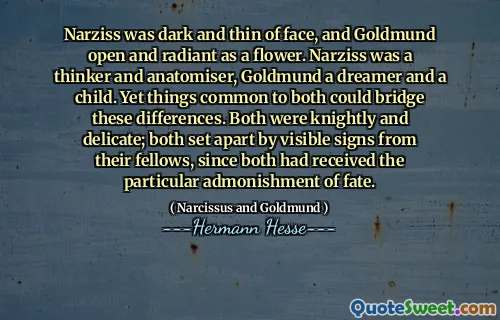
Like animals we call to each other, was the thought that came to him as he remembered the hour of love in the afternoon.
The quote evokes a profound sense of intrinsic communication that transcends spoken language, highlighting the primal and intimate ways animals and humans connect. The comparison of human longing and love to animal calls underscores the idea that some forms of connection are deeply rooted in natural instinct and are universal across species. This reflection invites us to consider how much of our emotional expression is instinctive—a kind of innate language that doesn't always require words to be understood. The hour of love in the afternoon signifies a moment of tenderness and vulnerability, emphasizing that such experiences are fundamental and timeless, much like the calls animals make to communicate their needs or emotions. It suggests that love, at its core, is a basic yet profound form of communication that bonds individuals beyond superficial layers, tapping into primal depths of our being. This perspective reminds us that despite the complexities of human emotion, some of our most meaningful interactions are as simple and genuine as calls into the wilderness, an echo of our animal origins. It highlights the beauty of authentic connection, where words may falter, but gestures, glances, and shared moments resonate with the universality of life's natural symphony. Such reflections deepen our understanding of love as a fundamental act of communication, echoing a primal rhythm that sustains the essence of existence and relational harmony. Hermann Hesse's insight beckons us to listen more attentively—not just with our ears, but with our hearts—to the silent calls that signify the depths of love and the core of our human nature.










